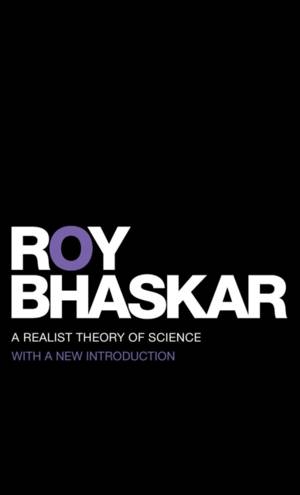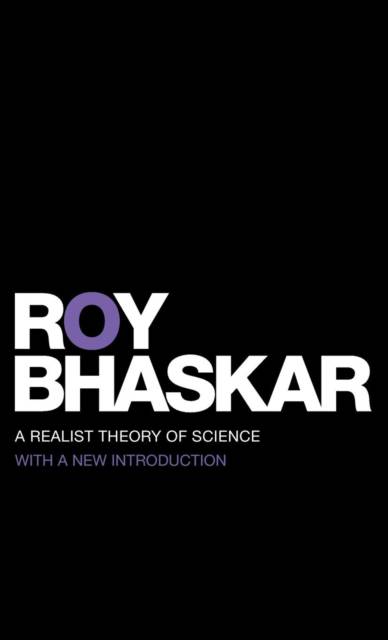
- Retrait gratuit dans votre magasin Club
- 7.000.000 titres dans notre catalogue
- Payer en toute sécurité
- Toujours un magasin près de chez vous
- Retrait gratuit dans votre magasin Club
- 7.000.000 titres dans notre catalogue
- Payer en toute sécurité
- Toujours un magasin près de chez vous
Description
First Published in 2008. Now acknowledged as a classic in the philosophy of science, A Realist Theory of Science is one of the very few books which has transformed not only our understanding of science, but that of the nature of the world it studies. Since its original publication in 1975, the book has inspired the multi-disciplinary and international movement of thought known as critical realism; and its ideas have been influential across the whole spectrum of the sciences, arts and humanities and in a diverse array of social practices and professions.
In this book, Roy Bhaskar sets out to revindicate ontology, critiquing the reduction of being in favor of knowledge, which he calls the epistemic fallacy. Employing a transcendental argument from the nature of experimental activity, he establishes a critique of the dominant positivist and neo-Kantian traditions in the philosophy of science, developing a new ontology in which concepts of structure, difference and change come to the fore. Then, analyzing the nature of scientific discovery and development, he shows how, against both the empiricist and rationalist traditions, science can come to have a posteriori knowledge of natural necessity.
The resultant position, which the author characterizes as transcendental realism, has the power to resolve many traditional philosophical problems, such as the problem of induction. At the same time it lays the basis for radically new accounts of social science, ethics and the project of human emancipation.
A new introduction to this edition by Mervyn Hartwig decribes the significance of A Realist Theory of Science throughout the humanities world, and offers an expert critique of its content.
In this book, Roy Bhaskar sets out to revindicate ontology, critiquing the reduction of being in favor of knowledge, which he calls the epistemic fallacy. Employing a transcendental argument from the nature of experimental activity, he establishes a critique of the dominant positivist and neo-Kantian traditions in the philosophy of science, developing a new ontology in which concepts of structure, difference and change come to the fore. Then, analyzing the nature of scientific discovery and development, he shows how, against both the empiricist and rationalist traditions, science can come to have a posteriori knowledge of natural necessity.
The resultant position, which the author characterizes as transcendental realism, has the power to resolve many traditional philosophical problems, such as the problem of induction. At the same time it lays the basis for radically new accounts of social science, ethics and the project of human emancipation.
A new introduction to this edition by Mervyn Hartwig decribes the significance of A Realist Theory of Science throughout the humanities world, and offers an expert critique of its content.
Spécifications
Parties prenantes
- Auteur(s) :
- Editeur:
Contenu
- Nombre de pages :
- 279
- Langue:
- Anglais
- Collection :
Caractéristiques
- EAN:
- 9781138137622
- Date de parution :
- 22-12-15
- Format:
- Livre relié
- Format numérique:
- Genaaid
- Dimensions :
- 140 mm x 216 mm
- Poids :
- 498 g







